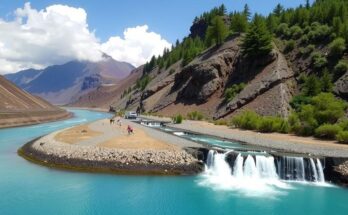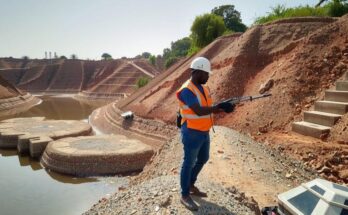The United Nations reported that the M23 rebellion in the Democratic Republic of Congo has led to armed groups controlling the Rubaya coltan-mining area, generating an estimated $300,000 monthly in revenue. This situation exacerbates local conflicts, threatens civilian rights, and underscores the need for international intervention to prevent ongoing exploitation of resources.
The United Nations Security Council was informed that armed groups in eastern Democratic Republic of Congo (DRC) have solidified their hold over the Rubaya coltan-mining region, entrenching a production tax that reportedly generates approximately $300,000 in revenue each month. The M23 movement, an organization led by individuals of Tutsi descent and allegedly supported by Rwanda, took control of this area following intense conflict in April. Bintou Keita, head of the UN mission in Congo, indicated that trade from minerals in Rubaya is responsible for more than 15% of the global tantalum supply. As the top producer of tantalum, which is classified as a critical mineral by both the United States and the European Union, DRC’s mineral wealth remains a focal point of concern. Ms. Keita emphasized the implications of this illicit revenue, stating, “This generates an estimated $300,000 in revenue per month to the armed group. This is deeply concerning and needs to be stopped.” She elaborated on the criminal activities associated with the natural resources of DRC, noting that smuggling operations are not only empowering armed factions but also contributing to the exploitation of vulnerable civilian populations, some of whom are subjected to forms of violent subjugation akin to slavery. The eastern region of Congo, rich in minerals, continues to be marred by violent conflicts, with the resurgence of M23 since March 2022 leading to significant loss of life and displacement. There is increasing scrutiny on manufacturers to guarantee that metals utilized in devices, such as laptops and electric vehicle batteries, are not obtained from conflict zones. Ms. Keita highlighted the transformative impact of rising mining profits on armed groups, stating, “Unless international sanctions are imposed on those benefiting from this criminal trade, peace will remain elusive, and civilians will continue to suffer.”
The Democratic Republic of Congo is endowed with vast mineral resources, particularly tantalum, which is a vital component in many technological devices. Historically, the region has experienced extensive conflict fueled by competition over these resources between various armed factions, leading to humanitarian crises, including widespread violence and displacement of civilians. The resurgence of the M23 rebellion has significantly exacerbated the situation, with armed groups capitalizing on the lucrative mining operations. The involvement of international actors, such as Rwanda’s alleged backing of the M23, complicates the conflict further, necessitating a focused global response to disrupt the cycle of violence and resource exploitation. The role of international corporations and global supply chains has come under scrutiny, highlighting the importance of ethical sourcing practices to prevent complicity in conflict-driven economies.
In summary, the situation in eastern Democratic Republic of Congo remains dire, as armed groups, particularly the M23, continue to exploit the region’s rich mineral resources, generating significant revenue that strengthens their militaristic and financial capabilities. The international community’s response, including the potential for sanctions and increased scrutiny on sourcing practices by manufacturers, is crucial in addressing these issues. The ongoing exploitation of the DRC’s natural resources not only undermines peace efforts but also places untold suffering on its civilian population, demanding urgent action to restore stability and safeguard human rights.
Original Source: www.mining.com




